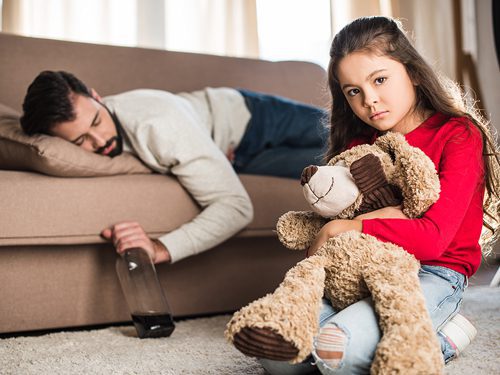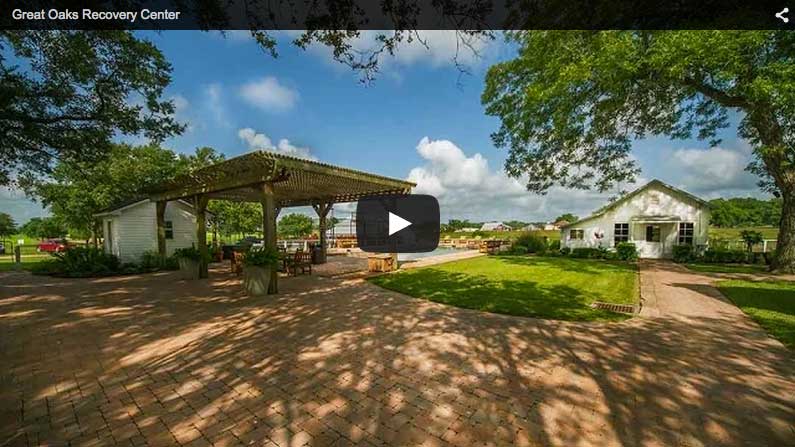 We learn everything from our parents: how to behave in society, how to express emotion, how to communicate, how to live.
We learn everything from our parents: how to behave in society, how to express emotion, how to communicate, how to live.
So, naturally, if a parent is dependent on a substance, it affects how the child grows up. It’s estimated that twenty-five percent of children grow up with parents who abuse substances. One generation’s relationships to substances affects the younger generations.
Children of alcoholics are four times more likely to become alcoholics than those who did not grow up with an alcoholic parent. It’s up for debate if alcoholism and drug addiction are genetically passed down, a result of family dysfunction, or a combination of both. Either way, children of addicted parents have several traits in common:
- Problems in school
- Low self-esteem
- Depression
- Anxiety
- Behavioral problems
- Earlier experimentation with alcohol or drugs
- Greater risk of being victims of emotional, verbal, or sexual abuse
Role Reversal: When the child becomes the parent
One common trait of these children is that they take on the roles of the parent. Parents are supposed to protect, provide, give stability, and comfort. But if the parent is unable to fulfill their role because of their substance use, children often take on the parenting role for both their siblings and their parents. This is true of young children and adults with parents who struggle with addiction.
This is called codependency. Codependency affects people from lots of situations, but often affects those with parents who struggle with addiction. Fortunately, there are support groups including Co-Dependents Anonymous, a 12-Step Program. If any of the below signs of codependency are true of you, reach out for help so that you can break the generational cycle in your family.
Here are some signs that children are taking on role reversals:
- Trying to save parent from depression or suicidal tendencies.
- Feeling guilty if problems with parent worsen.
- Saying or implying things like, “My dad left when I was born and that’s when my mom started to do drugs. So it’s my fault that my mom does drugs.” Or, “If I was better at school/sports/etc. my step-dad wouldn’t be so stressed and wouldn’t drink as much.”
- Sleeping in same bed with parent who is anxious.
- Taking on inappropriate emotional baggage. For example, listening to a parent talk about past sexual relationships.
- Choosing to keep a parent company instead of hanging out with friends.
- Using substances with parent in hopes to create an emotional bond with the parent.
Role Reversal is harmful for children in a variety of ways.
- It forces children into a kind of maturity that they are not ready for.
- By providing for themselves before they are grown, they are at greater risk of malnutrition, abuse, and crime.
- If they are embarrassed by their parent’s behavior or feel they must keep their parent’s substance abuse a secret, they may not form healthy bonds with their peers. For example, they may stay at home alone instead of inviting a friend over.
- Taking on the stress of acting like a parent can actually hinder proper brain development.
- Perhaps the most harmful effect is that many children grow up with a deep sense of guilt and dread. The belief that their parent’s decisions are their fault is emotionally and psychologically devastating.
For children of people struggling with addiction, it can be very hard to seek help for themselves or their parent. The parent might have outright said or implied that the parent’s substance abuse is a secret. The parent might even make threats about what will happen if the child tells anyone. Even if the parent doesn’t threaten outright, “Family problems stay in the family” is a strong ideal that runs in many families. A child might feel like he/she is betraying the family by seeking help. Some parents might be afraid that they’ll lose custody of their child if anyone finds out about the substance abuse, and so they tell the child not to tell anyone.
Also, as stated earlier, children with parents who struggle with substance abuse often are not emotionally healthy. They might have low self-esteem, feel helpless, or struggle with anxiety and fear. This can make it difficult to reach out for help. Substance abuse is one of the major reasons children run away and become homeless.
What can a child do to cope with the stresses of having a parent who struggles with addiction?
If you are an adult who knows a child whose parent struggles with substance abuse, encourage the child to take these steps:
- Make a list of safe places to go if things get bad. Also, make a list of emergency phone numbers.
- Tell one adult that you trust—a teacher, coach, or family member.
- Write down your feelings.
- Find something you like doing that makes you feel confident—listen to music, play a sport, or paint.
- Spend time with your friends. Pick good friends who you trust, and tell them about what’s going on at home.
If you are an adult who knows a child whose parent struggles with addiction, seek help for the parent as soon as possible at Great Oaks Recovery Center or another center in their area. If you are struggling with addiction or have a parent who is, Great Oaks
can help you work through the emotional problems underlying co-dependency and the difficulty of having a parent who struggles with addiction.
Great Oaks’ holistic approach provides family counseling for those in the recovery center. Licensed staff give support to individuals and families of those struggling with addiction and can help you address the deep issues of addiction recovery and family. If you or someone you know is abusing substances, contact Great Oaks Recovery Center for information about how to get help.


